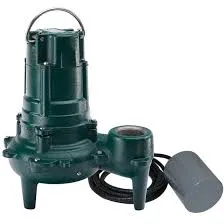Hindi
- Afrikaans
- Albanian
- Amharic
- Arabic
- Armenian
- Azerbaijani
- Basque
- Belarusian
- Bengali
- Bosnian
- Bulgarian
- Catalan
- Cebuano
- Corsican
- Croatian
- Czech
- Danish
- Dutch
- English
- Esperanto
- Estonian
- Finnish
- French
- Frisian
- Galician
- Georgian
- German
- Greek
- Gujarati
- Haitian Creole
- hausa
- hawaiian
- Hebrew
- Hindi
- Miao
- Hungarian
- Icelandic
- igbo
- Indonesian
- irish
- Italian
- Japanese
- Javanese
- Kannada
- kazakh
- Khmer
- Rwandese
- Korean
- Kurdish
- Kyrgyz
- Lao
- Latin
- Latvian
- Lithuanian
- Luxembourgish
- Macedonian
- Malgashi
- Malay
- Malayalam
- Maltese
- Maori
- Marathi
- Mongolian
- Myanmar
- Nepali
- Norwegian
- Norwegian
- Occitan
- Pashto
- Persian
- Polish
- Portuguese
- Punjabi
- Romanian
- Russian
- Samoan
- Scottish Gaelic
- Serbian
- Sesotho
- Shona
- Sindhi
- Sinhala
- Slovak
- Slovenian
- Somali
- Spanish
- Sundanese
- Swahili
- Swedish
- Tagalog
- Tajik
- Tamil
- Tatar
- Telugu
- Thai
- Turkish
- Turkmen
- Ukrainian
- Urdu
- Uighur
- Uzbek
- Vietnamese
- Welsh
- Bantu
- Yiddish
- Yoruba
- Zulu
Telephone: +86 13120555503
Email: frank@cypump.com
नवम्बर . 13, 2024 08:51 Back to list
chemical resistant pumps
Chemical-Resistant Pumps A Vital Component in Modern Industries
In the diverse world of industrial operations, the management and movement of fluids are critical components affecting efficiency and safety. Among the many variations of pumps utilized in various sectors, chemical-resistant pumps stand out due to their specialized design and functionality. They are specifically engineered to handle corrosive liquids and harsh chemicals, making them indispensable in industries such as chemical manufacturing, oil and gas, pharmaceuticals, and water treatment.
Chemical-resistant pumps are designed to endure the aggressive nature of corrosive materials, which can include acids, bases, solvents, and other hazardous substances. These pumps are constructed from materials that can withstand significant chemical exposure without degrading or losing functionality. Common materials used in the production of chemical-resistant pumps include various types of plastics, stainless steel, and exotic alloys. Each material has its unique properties, allowing for the selection of suitable pumps based on the specific chemical properties of the fluids being transferred.
Chemical-Resistant Pumps A Vital Component in Modern Industries
Integration of chemical-resistant pumps in industrial processes also enhances operational efficiency. These pumps can efficiently handle a wide range of flow rates and pressures, accommodating the specific needs of any given application. Whether transferring viscous liquids or low-viscosity solvents, chemical-resistant pumps can be tailored to meet the unique demands of various processes. Moreover, many modern chemical pumps come equipped with advanced technologies such as variable speed controls, enhancing their versatility and optimizing energy usage.
chemical resistant pumps

Safety is another key factor driving the demand for these pumps. The handling of hazardous chemicals requires strict adherence to safety regulations and standards. Chemical-resistant pumps are designed with safety features that minimize the risk of accidents, ensuring safer working environments. For instance, many pumps include hermetic sealing to prevent leaks and avoid toxic exposure to workers. Automatic monitoring systems can also provide real-time data on pump performance, alerting operators of any anomalies that may pose risks.
The significance of chemical-resistant pumps extends to environmental considerations as well. By preventing leaks and ensuring proper containment of hazardous substances, these pumps play a critical role in protecting the environment from contamination. The use of reliable and safe pumping solutions not only safeguards workers but also upholds corporate responsibility towards ecological sustainability.
As industries continue to evolve and expand, the demand for chemical-resistant pumps is expected to grow. Innovations in materials and technologies will likely lead to even more efficient and safer pumps, addressing the challenges posed by an ever-changing chemical landscape. Moreover, with increasing regulatory scrutiny on environmental protection and workplace safety, investing in high-quality chemical-resistant pumps will become essential for companies striving to maintain compliance and uphold their commitment to both safety and sustainability.
In conclusion, chemical-resistant pumps are a vital component in modern industrial applications, promoting safety, efficiency, and environmental responsibility. Their specialized design and construction enable them to handle the rigorous demands of transporting corrosive fluids, making them an essential asset in various sectors that rely on chemical processing. As industries advance, the continuing development of these pumps will be crucial in supporting safe and efficient operations.
-
Custom Drilling Mud and Slurry Pump Supplier - High Efficiency, Tailored Solutions
NewsJun.10,2025
-
Supply Vertical Submersible Sewage Pump High-Efficiency WQ/QW Pumps Supplier
NewsJun.10,2025
-
Premium Sewage Ejection System & Pumps Efficient Waste Removal
NewsJun.09,2025
-
Premium Wholesale Slurry Pump Impellers Durable & Efficient Slurry Handling
NewsJun.09,2025
-
Top Sewage Pump Companies Durable Industrial Solutions for Efficiency
NewsJun.09,2025
-
Heavy Duty Slurry Pumps - OEM High Performance & Bulk Wholesale
NewsJun.09,2025










